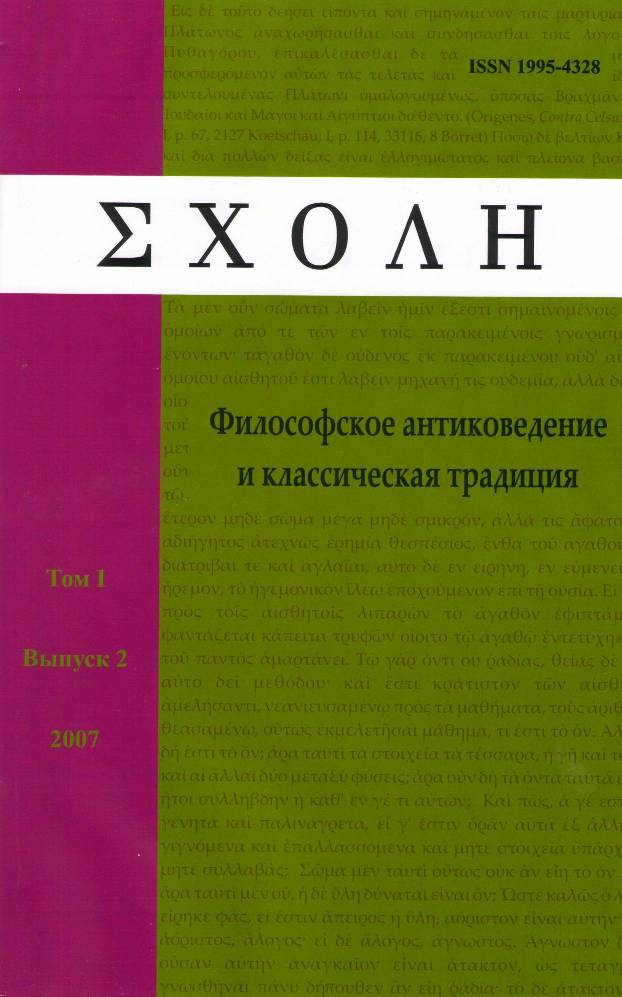Is it possible to see darkness? Goethe and Aristotle on the role of light and darkness in vision
Is it possible to see darkness? Goethe and Aristotle on the role of light and darkness in vision
Author(s): Svetlana MesyatsSubject(s): German Literature, Ancient Philosphy
Published by: Новосибирский государственный университет
Keywords: Goethe’s Farbenlehre; apparent colors; primordial phenomenon; light and darkness; Aristotle’s color theory; transparent medium; vision; acting and being affected;
Summary/Abstract: J.W. Goethe in his Farbenlehre deduced all physical colors from a simple primordial phenomenon that takes place every time light and darkness act through a semitransparent colorless medium either on our eyes or on the opposite surfaces. This basic rule of Goethe’s color theory was criticized by his contemporary physicists, who argued that darkness could not play an active role in the origin of colors because of being a mere absence of light. The paper demonstrates that this criticism became possible only if one shares the Newtonian view on the nature of light and darkness. Goethe however held a more traditional point of view, which he traced back to Antiquity and Aristotle. In contrast to Newton and his followers, previous scientists considered light not as an immediate cause of colors but as an actually transparent medium that conveyed colors from the visible objects to the organ of sight. For vision to take place, the color must first affect the light, which in its turn, must affect the faculty of vision. Though it is difficult to say what kind of change the light undergoes when some colored object is seen through it, most Aristotle commentators agree that this change must be real and not mere relational. In Aristotle’s physics, however, things that are capable of acting on and being affected by one another are either contraries or consist of contraries. Therefore, to be visible the color must be either dark or to contain darkness. Thus, assuming that Goethe shared the Aristotelian concept of light, we have to conclude that he was not mistaken saying that darkness "acts” upon our eyes or “is seen through” the illuminated semi-transparent medium.
Journal: ΣΧΟΛΗ. Философское антиковедение и классическая традиция
- Issue Year: XIII/2019
- Issue No: 2
- Page Range: 537-553
- Page Count: 17
- Language: English

